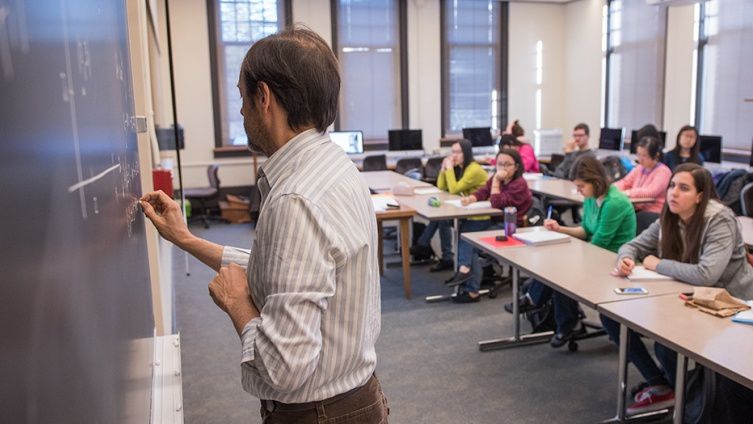Smith College has received a grant from NASA to boost efforts to break down barriers that prevent more women from entering the world of STEM – science, technology, engineering and math.
The school is among seven other women’s colleges across the country to share the $5 million grant from NASA, which at Smith will be directed toward a program called MaRS or “Math Resilient Students.”
Junior and senior STEM students will mentor first- and second-year students under the program. The mentees will also work within the community at local schools to develop math activities for girls from kindergarten to eighth grade.
“One of the main roadblocks to persistence in STEM fields, and especially for women, and especially for women from underrepresented minorities, is math, and in particular calculus,” said Christophe Golé, professor of mathematical sciences and faculty director of Smith’s Clark Science Center. “We want to take the stigma and trauma maybe attached to math … and try to put them in a position of agency where they become mentors for younger students, and thereby overcome their possible anxiety and resistance to math.”
The program was created by Golé and Shannon Audley, associate professor of education and child study at Smith. Both Golé and Audley will act as co-principal investigators for the NASA grant, which means they will direct and oversee the MaRS project.
This isn’t the first time Smith College has engaged in STEM efforts for women, as the school also has a previous ongoing program named AEMES.
“The AEMES program is ‘Achieving Excellence in Math, Engineering and Sciences,’ and it's targeted to underrepresented population of students, first-gen, and racial minorities,” Golé said. “But it only focuses on a cohort of 20 students per year, and it helps them access research opportunities in their first two years, and so give them access to professors and peers. And so the program that we're putting in place now, we see it partly as an extension of AEMES.”
As well as breaking down barriers to STEM for women, there’s also the importance of improving representation of women in STEM fields.
“Growing up throughout all of school, kindergarten to my senior year of high school, I struggled with math, and a lot of my teachers even kind of reinforced this narrative that a lot of students who identify as female were kind of bad at math,” said Sofia Morales, a rising junior at Smith College.
Morales is an education and math major, and she hopes to become a math teacher after having participated in the AEMES program. She will be participating in the new MaRS program in the coming school year.
“I'm really looking forward to just working with other people who have faced math anxiety, and to hopefully help them combat that,” she said.



